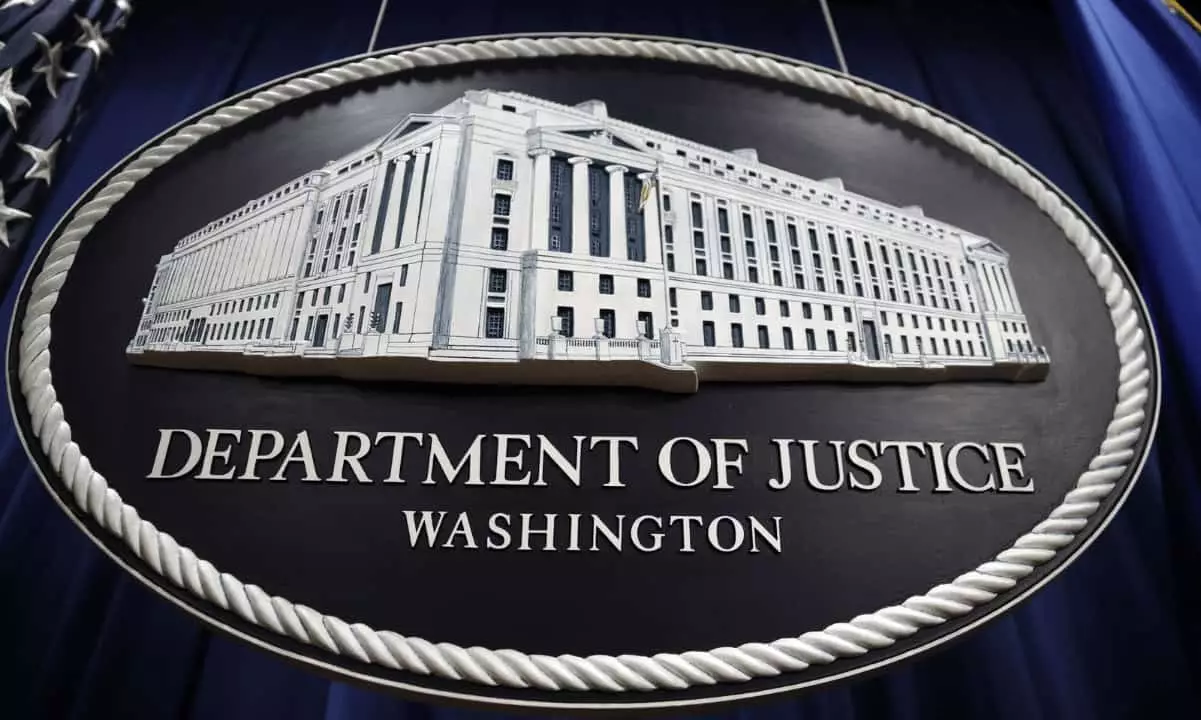The recent indictment of Maximiliano Pilipis, a 53-year-old former resident of Noblesville, Indiana, has shed light on the murky waters of cryptocurrency regulation and its implications for law enforcement. Accused of significant financial misconduct, including money laundering and failure to file tax returns, Pilipis’s case represents a growing concern within the U.S. Department of Justice regarding the misuse of digital currencies. His alleged operations raise questions about the regulatory frameworks that govern virtual exchange platforms and the inherent risks associated with unregulated financial activities in the cryptocurrency realm.
Pilipis is said to have launched an unlicensed virtual currency exchange named AurumXchange in 2009, operating until 2013. This exchange facilitated the conversion of Bitcoin and other cryptocurrencies into U.S. dollars and various international currencies. According to court documents, the platform executed over 100,000 transactions, with reports indicating the total volume exchanged was upwards of $30 million. The exchange’s model, which included charging fees amounting to more than 10,000 BTC, valued around $1.2 million at the time, demonstrates a lucrative business, albeit under troubled auspices.
The absence of regulatory compliance is particularly striking in this case. U.S. law mandates that money transmitters engage in strict customer identity verification and appropriately report transactions to the U.S. Treasury. AurumXchange’s operation lacking these safeguards presents a dire reflection of the risks that unregulated cryptocurrency exchanges pose to the financial system and national security.
Significantly, the allegations extend to connections with the Silk Road, a notorious darknet marketplace that operated from 2011 until its shutdown in 2013. This platform became infamous for facilitating the sale of illicit goods, primarily drugs, using cryptocurrencies to maintain user anonymity. Prosecutors contend that AurumXchange acted as a conduit for Silk Road customers looking to convert cryptocurrencies back to fiat, effectively enabling illicit money laundering.
By bypassing regulatory protections, Pilipis allegedly granted access to transactions associated with anonymous accounts, some directly linked to Silk Road activities. The implications of these operations highlight a crucial issue within the cryptocurrency ecosystem: without proper governance, digital currencies can perpetuate illegal activities while evading traditional financial oversight.
Even after discontinuing AurumXchange’s activities in 2013, Pilipis purportedly undertook significant efforts to obscure the origins of funds acquired through his operations. The indictment suggests that he engaged in splitting, transferring, and concealing the Bitcoin proceeds to distance himself from their illicit origins. Reports indicate that by 2018, he was converting parts of the cryptocurrency into U.S. dollars, subsequently investing in real estate properties in Indiana.
However, the most notable aspect of Pilipis’s case is not merely the alleged money laundering and concealment of funds, but also his failure to file federal income tax returns during 2019 and 2020, despite generating substantial income. This negligence raises red flags about the accountability of individuals reaping fortunes within the cryptocurrency space without comparable scrutiny from tax authorities.
The indictment of Pilipis highlights major points of concern for the U.S. government regarding the surveillance and regulation of cryptocurrency operations. U.S. Attorney Zachary A. Myers emphasized that combatting the crime associated with digital assets and cryptocurrencies remains a crucial priority within the Department of Justice. As legislators and regulators grapple with the fast-evolving landscape of virtual currencies, the need for comprehensive oversight becomes more critical than ever.
If Pilipis is convicted on all counts, he could face substantial penalties, including a possible 10-year prison sentence and fines of up to $250,000. The unfolding of this case illustrates not only the risks associated with unregulated financial behavior but also serves as a cautionary tale for burgeoning cryptocurrency entrepreneurs navigating a complex legal landscape.
Maximiliano Pilipis’s case underscores a vital turning point in the relationship between cryptocurrency and regulatory frameworks. As the industry rapidly evolves, it is imperative for authorities to impose stringent regulations that can prevent exploitation and safeguard the financial landscape. The government’s commitment to pursuing those who manipulate the inherent vulnerabilities of digital currencies will be crucial in shaping the future of cryptocurrency, protecting both the economy and consumers in this burgeoning frontier.

